Good News! 31 Positive Environmental Stories from 2021

Get news, updates, & event Info delivered right to your inbox:
Good Environmental Stories From 2021 That Will Make You Smile
Happy Treecember everyone and congratulations! You made it through 2021. We still witnessed plenty of ups and downs this year but while we were holding onto this rollercoaster we call life, lots of really positive things happened for the environment this year! It was one hell of a year for the trees. Between huge tree planting initiatives and new policies there is a lot of hope for the future of our forests. Beyond the trees we have many stories to tell about wildlife, innovation, policies, and stories just too good not to share!
Trees & Reforestation
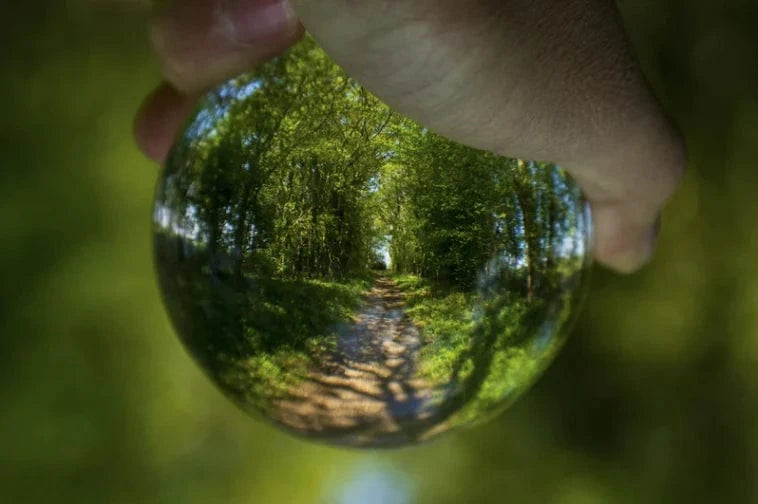
One Tree Planted Awarded Restoration Grant from Bezos Earth Fund
We’re thrilled to share that One Tree Planted has received a $15 million grant from the Bezos Earth Fund to support our work together with the World Resources Institute and AFR100 to restore landscapes across the African Continent. For every $1 million invested into this initiative, it's estimated that we can empower 5 African enterprises and community organizations, restore 1,400 hectares of land (equivalent to 1,000 soccer fields), create 650 jobs, plant 1 million trees, and deliver $9-12 million dollars in benefits to local populations.

UN Launches Ecosystem Restoration
January 1st marked the beginning of the UN Decade on Ecosystem Restoration, which runs from 2021-2030. Because scientists have identified this time as humanity’s last chance to prevent catastrophic climate change, we really need to make this decade count.
Led by the UN Environment Programme and the UN Food and Agriculture Organization, the Decade on Ecosystem Restoration serves as “a rallying call for the protection and revival of ecosystems all around the world, for the benefit of people and nature.” This is our chance to halt the degradation of ecosystems, restore previously degraded areas, and step into a new reality — one where we’ve truly done everything we can to reduce our climate change impact.
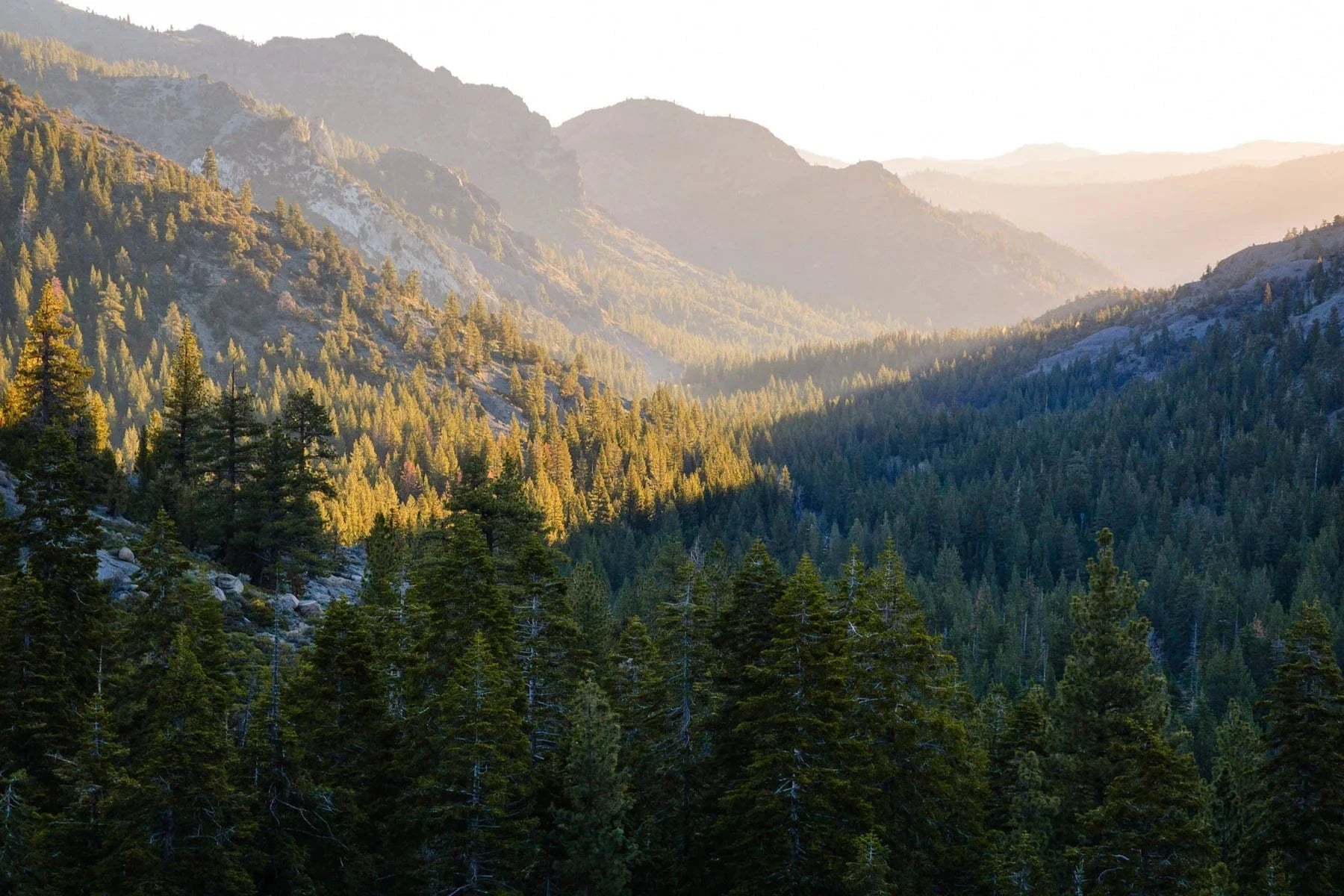
Biden’s $27 Billion Bet On Forests
While President Biden's Build Back Better plan has yet to pass in the senate, we can't help but be excited by the $27 billion dollars that have been allocated towards spending related to the management and conservation of federal, state, and tribal forests. If passed, it will represent the single largest investment in our national forests, ever. More than half of this money would necessarily go towards wildfire prevention and management, which are a growing threat due to climate change. Just this past summer, fires in the American West spewed 130 million tons of CO2 into the atmosphere.
But in addition to wildfire management, the bill allocates $2.5 billion for urban forestry projects that seek to provide more equal access to forests and parks, which is roughly 6X more than the government spends on those projects today. It also allocates $50 million for protecting old-growth trees and another $50 million for conserving and restoring habitats for threatened species in public forests — and another $50 million toward reducing human-wildlife conflict on these lands. Without a doubt, if this bill is passed, it will provide a much-needed lifeline for our nation's forests and biodiversity, particularly for those that are under threat from wildfires.
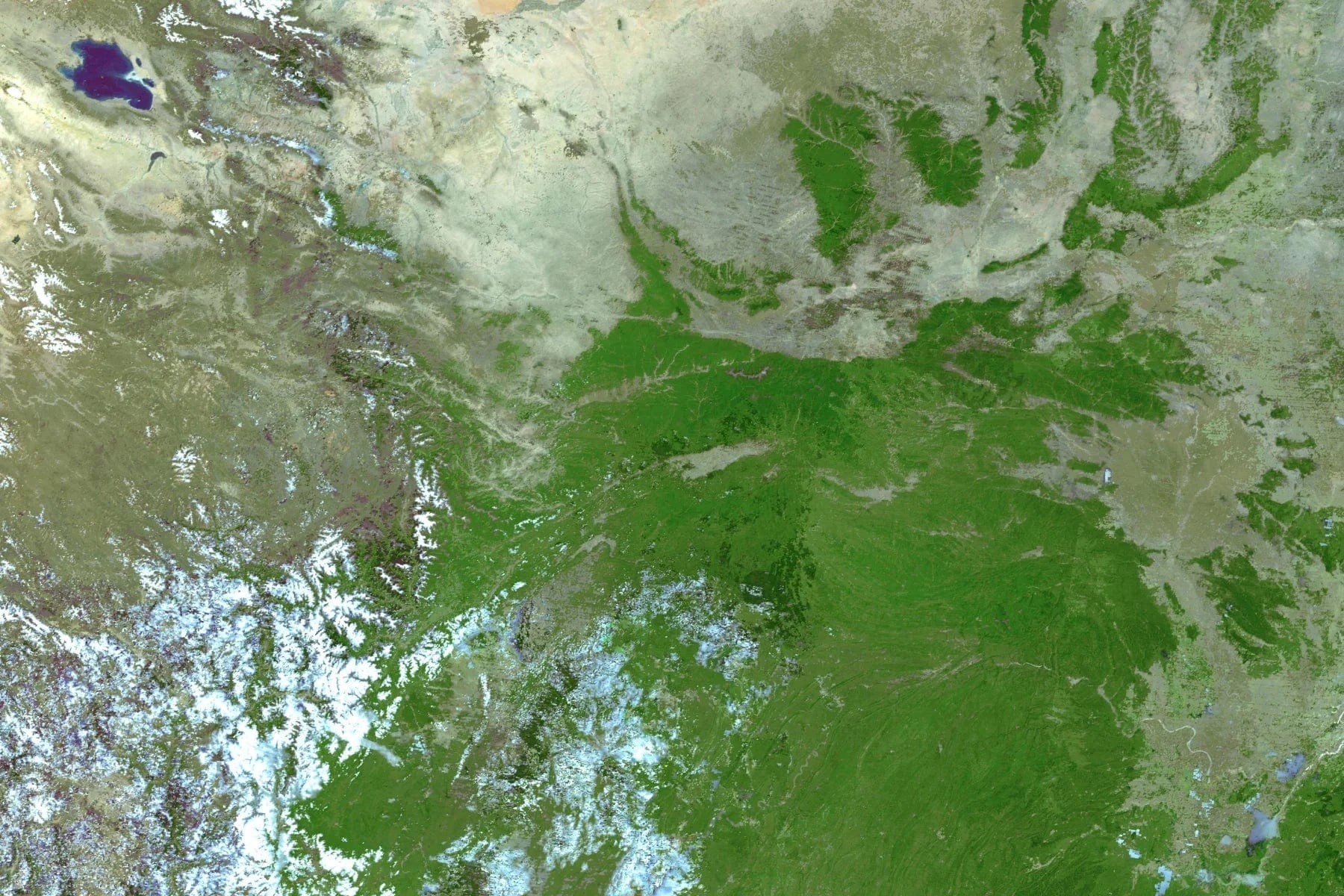
NASA Satellites Help Quality Forest's Impacts On Global Carbon Budget
It is an exciting time for reforestation! The world now knows that trees matter and are the best nature-based solution for climate change. One thing that's always evolving is the technology behind environmental initiatives. After all, it's crucial to monitor and collect data to better understand exactly what kind of impact our forests have. And according to NASA, "using ground, airborne, and satellite data, a diverse team of international researchers – including NASA scientists – have created a new method to assess how the changes in forests over the past two decades have impacted carbon concentrations in the atmosphere".
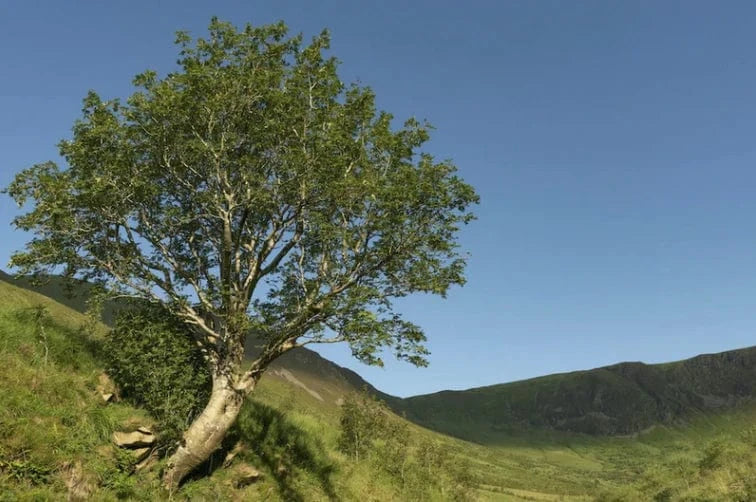
Scotland's Survivor Rowan Tree: A Symbol Of Resilience And Renewal
It started with a tree, a bare valley and an audacious dream. 25 years ago, the ‘Survivor Tree’ rowan was one of very few trees remaining in the sheep grazed valley of Carrifran in the Scottish Borders. The dream was that one day this whole valley would be filled with trees to create a Wildwood. Now this aspiration is well under way and more than 700,000 trees surround the lone rowan. This project has now evolved and expanded to include more valleys and upland areas at Talla & Gameshope. Slowly but surely, the Wild Heart of Southern Scotland is being revived!
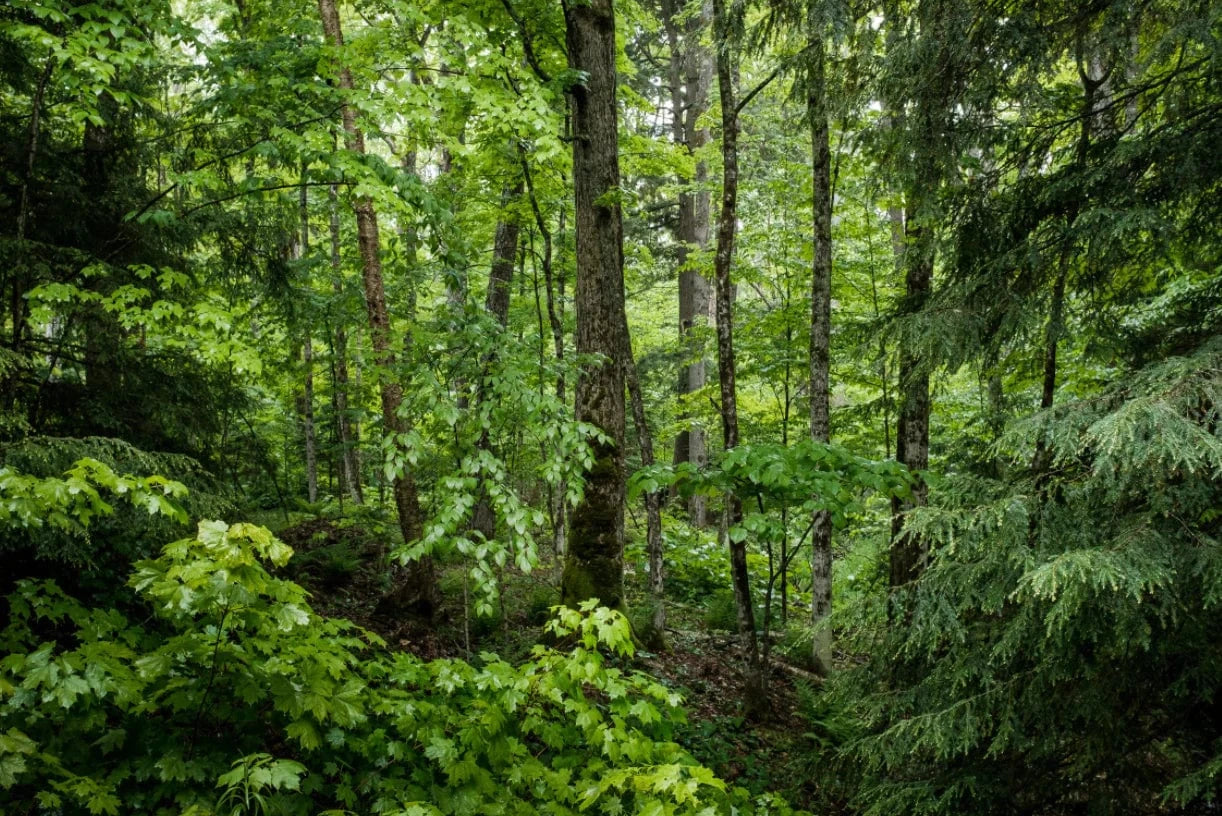
Forest the Size of France Regrown Worldwide Over 20 years, Study Finds
In forest news, nearly 59 million hectares of forest has regrown since 2000, proving that natural generation efforts are paying off! This two year study collected data via satellite imaging and on-ground surveys throughout several countries. These forests have the potential to soak up and store 5.9 gigatonnes of carbon dioxide. While this is great news, it's also a clear reminder of how important it is to halt deforestation and restore our forests so they can help mitigate climate change.
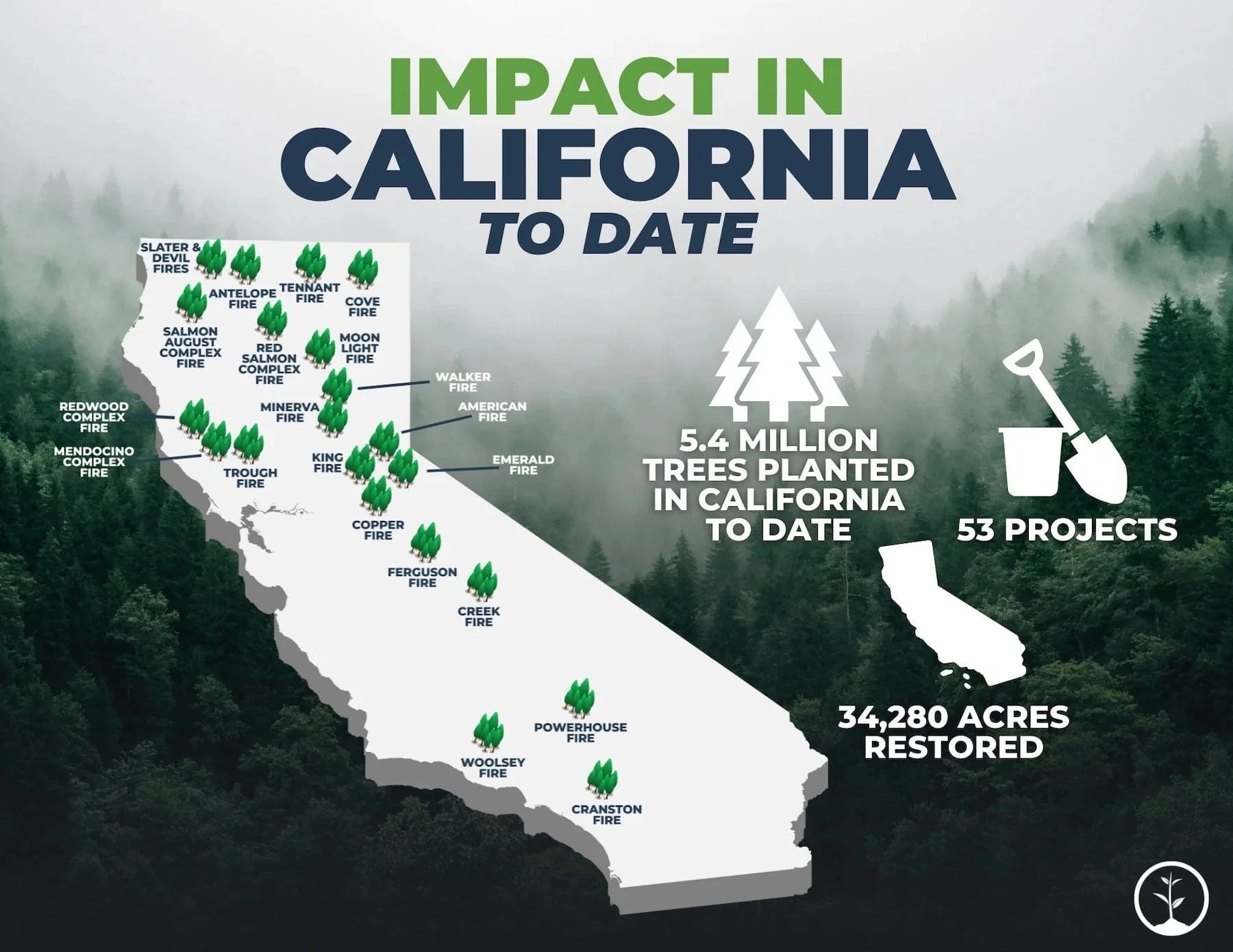
1.2 Million Trees Planted in California for Forest fire restoration in 2021
As wildfire severity has increased over the past several years, our post-wildfire restoration efforts have increased right along with it. Working with big partners like the United States Forest Service and CALFIRE and smaller ones like local Resource Conservation Districts and private landowners across the Golden State, we've planted over 5.4 million trees to date. We're dedicated to helping partners at any level and any location ranging from federal and state to public and private land, because everyone should be able to rebuild and restore after wildfires.
So far this year, we've planted 1,232,296 trees through 6 projects to restore burn scars from several forest fires across California. As these trees grow into maturity, they will help prevent invasive species from colonizing burn sites, develop richly layered habitat for native biodiversity, stabilize disturbed soils and control erosion, sequester carbon over time, protect critical watersheds, stabilize riparian zones, benefit local communities that have been affected by wildfires, and more.

Vietnam to Plant 1 Billion Trees
After experiencing devastating natural disasters like typhoons, Vietnam is planning to utilize a nature-based solution to avoid this devastation in the future: planting trees! The billion-tree program is now an official government policy which will aim to plant trees to restore ecosystems, beautify green spaces, boost the economy, and prevent flooding, soil erosion, and landslides. We're thrilled to be seeing countries committed to planting trees and are honored to have a project in Vietnam that will contribute to this massive effort!
Scientists Want to Map the World's Fungi
There's a lot more to forests than what we see above ground. Vast networks of fungi exist underground and while we know a lot about how they benefit forests and ecosystems, there's still a lot to learn. This is why a team of scientists is launching an effort to map the world’s mycorrhizal fungi! They hope this study will help identify fungal biodiversity for conservation, gain understanding on how carbon is stored in soil, as well as how the fungi interacts with ecosystems.
Wildlife
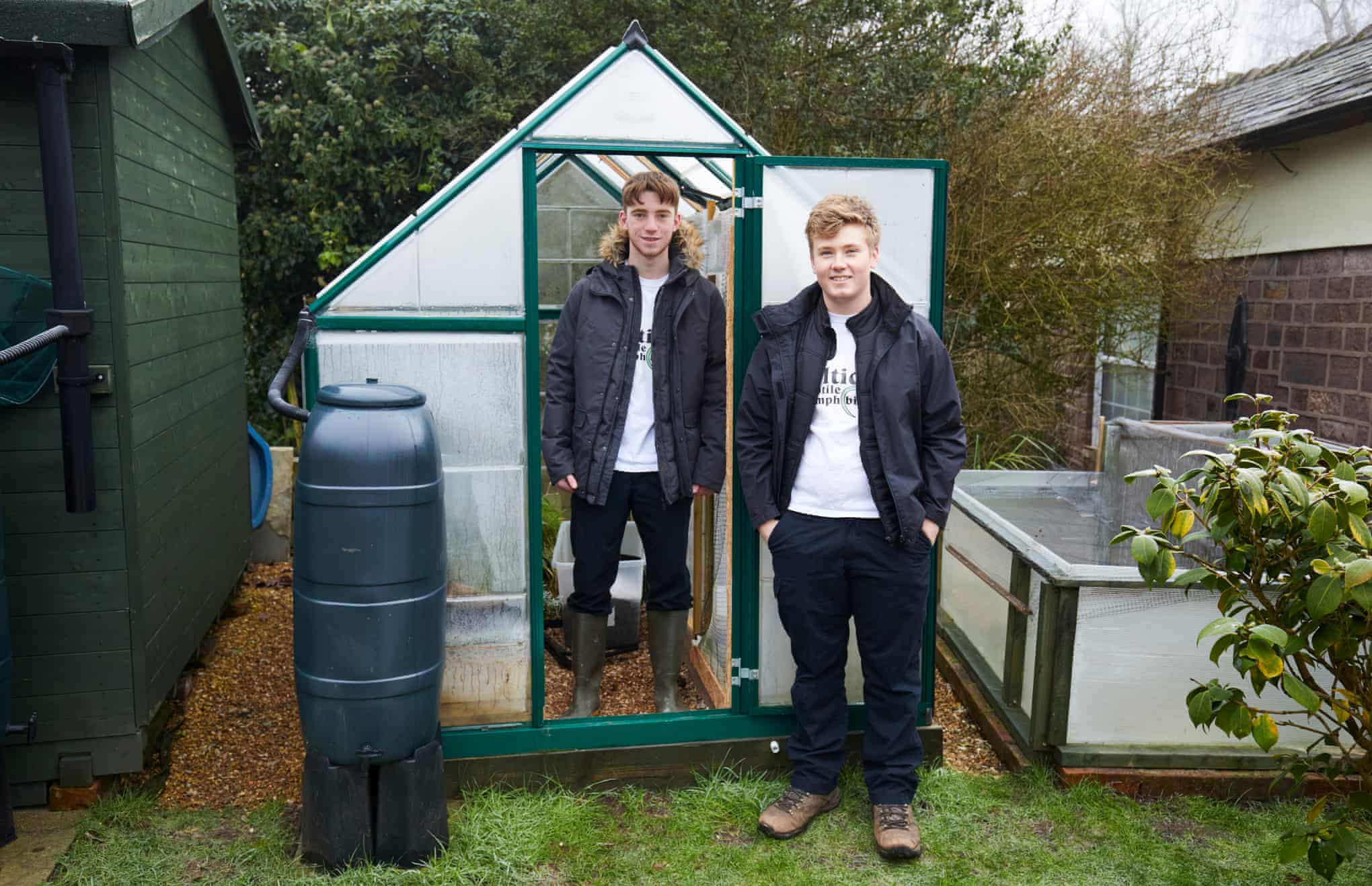
The Teenage Boys On A Mission - To Rewild Britian with Reptiles
At 17 years old, most teenagers are focused on their studies or hanging with friends. Harvey and Tom of Britain have something else in mind: to replace the toads, frogs and lizards Britain has lost. The pair will soon launch a new company that they hope will be the country’s largest outdoor breeding facility for reptiles and amphibians. Some think they're crazy but we think they've got the right idea!
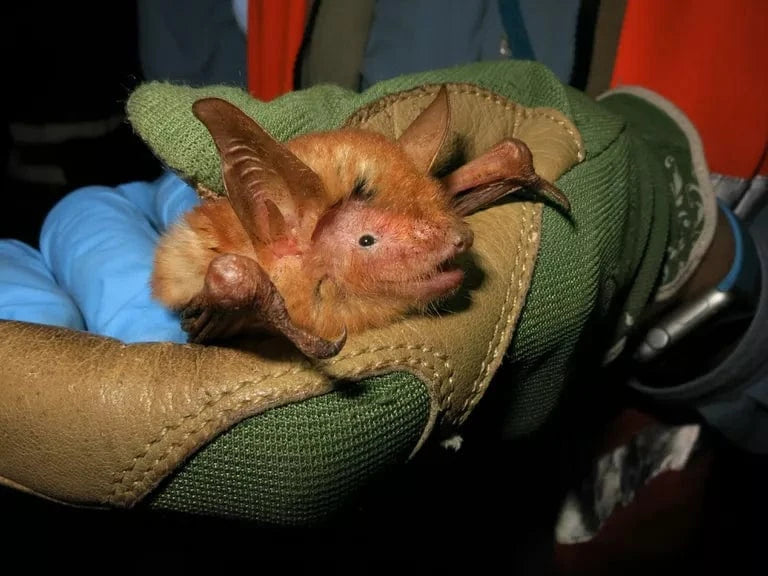
New Orange Colored Bat Discovered in West Africa
A striking new bat was discovered by researchers in Guinea's isolated Nimba Mountains in West Africa! Scientists were conducting research in natural caves when the bat was discovered. As shared by Jon Flanders of Bat Conservation International, “while catching bats emerging from one of these sites we noticed a bat that looked very different from all the others.” No one could identify the bat, which made them realize they'd discovered a new species!
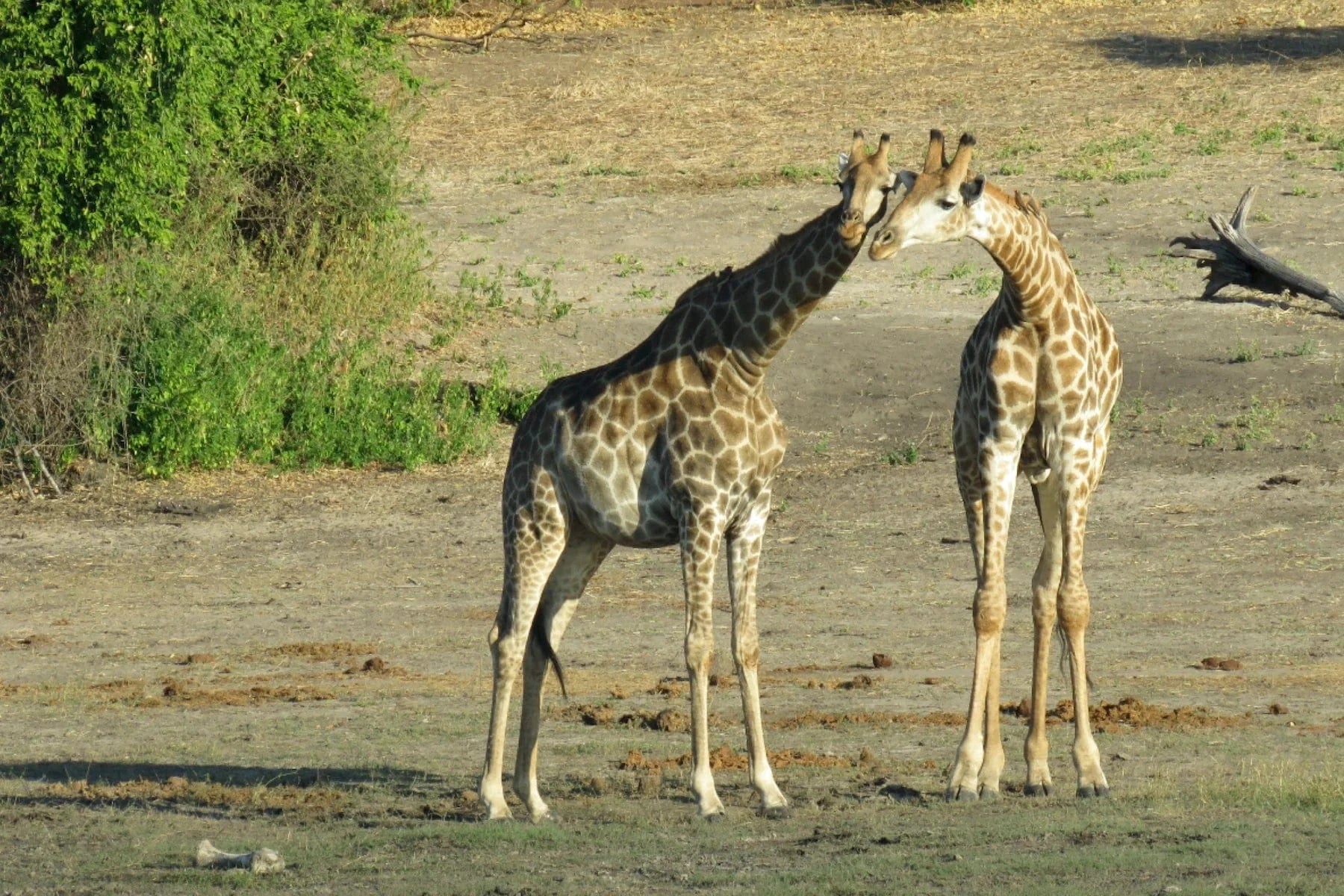
Female Giraffes With Friends Live Longer
Researchers at the University of Zurich in Switzerland posed the question, "Do differences in the socio-ecological environment experienced by individuals influence their survival?" The study observed giraffes in Tanzania over a period of 5 years, and the verdict is clear: females with besties live longer. "Grouping with more females, called gregariousness, is correlated with better survival of female giraffes, even as group membership is frequently changing," according to Monica Bond who led the study.
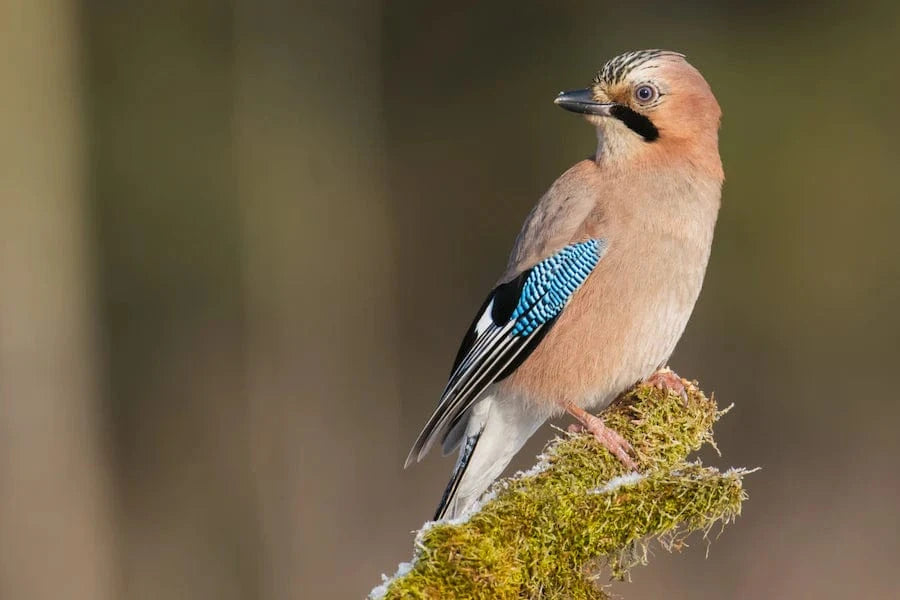
Half the Trees in Two English Woodlands Planted by Jays
lowland England is thanking Jays for planting nearly half the trees in two new woodlands. The study conducted really supports the idea of natural regeneration as these birds have avoided the added costs of tree guards, labor costs, and time that goes into the large-scale projects. So how do they do it? “Passive rewilding” is where thrushes spread seeds of bramble, blackthorn and hawthorn, and this scrub then provided natural thorny tree “guards” for oaks that grew from acorns buried in the ground by jays. It took 24 years for the young woodland to boast its new 132 live trees per hectare. Well done Jays!
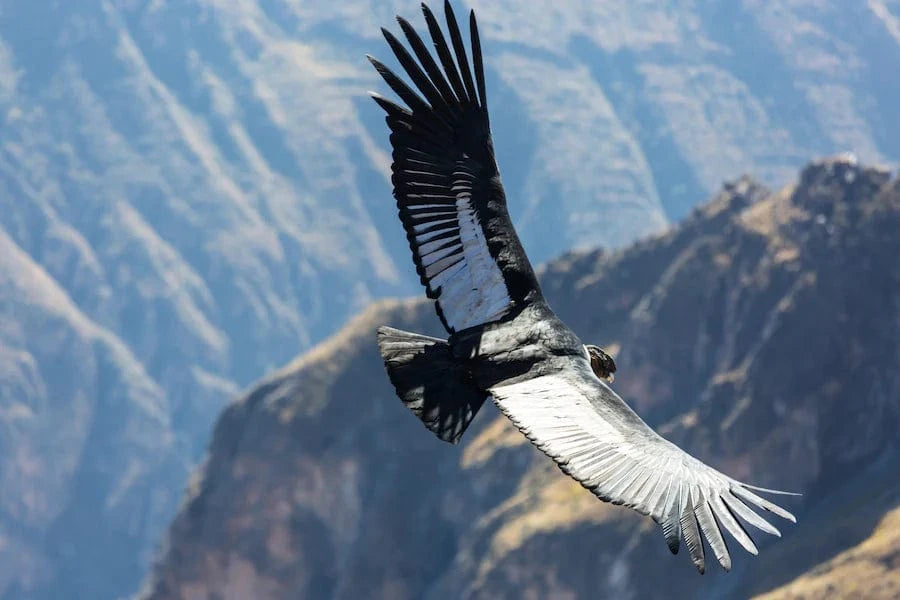
The California Condor Rising Again
The California Condor is a very rare sight to see as the population is near to no longer existing. Which makes sense why researchers were on edge when the Dolan Fire, which consumed 125,000 acres along the Big Sur Coast displaced many of the birds. With many restoration efforts in place though, conservationists are feeling very hopeful that we will see a rise in the condors' population! We're very proud to also be a part of the restoration efforts in California that will help too!
Innovation
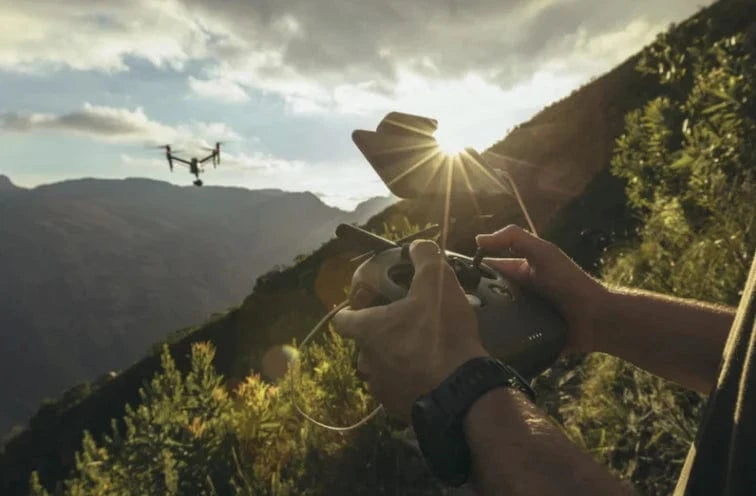
One Tree Planted Receives RBC Tech for Nature Grant for Drones
We're excited to announce that we've received a grant from RBC Foundation USA to expand our reforestation and monitoring programs by developing a drone training program with a focus on forest restoration. We've long been interested in deploying drone technology to further our reforestation efforts, and have been researching ways to scale our global impact by making it accessible to our global planting network!

Killer Farm Robot Dispatches Weeds with Electric Bolts
Killer robots that could be used for sustainable agriculture? Sounds fun! It's not what you think: THIS robot kills weeds! Using artificial intelligence, it operates with a black electrode that descends on pesky interlopers and delivers an 8,000-volt blast and then POOF! Weeds be gone! The robot is part of an initiative to cut back on pesticides with hopes of offering a more sustainable future for farming — especially as farms are being pushed to produce more food at a faster rate.

Goats Brought to NYC Park to Munch on Invasive Species
NYC Parks hosted their second annual "Running of the Goats" which is an event where animals are brought in to remove invasive species by grazing. Organizations that took part in the event have been focusing on the removal of invasive species like porcelain berry, English ivy, mugwort, multiflora rose and poison ivy. We know what you're thinking, "Isn't eating poison ivy bad for the goats?!". Nope! Goats are actually immune to the allergens in poison ivy. Their passion for eating and speedy grazing pace makes goats super invasive species removers!
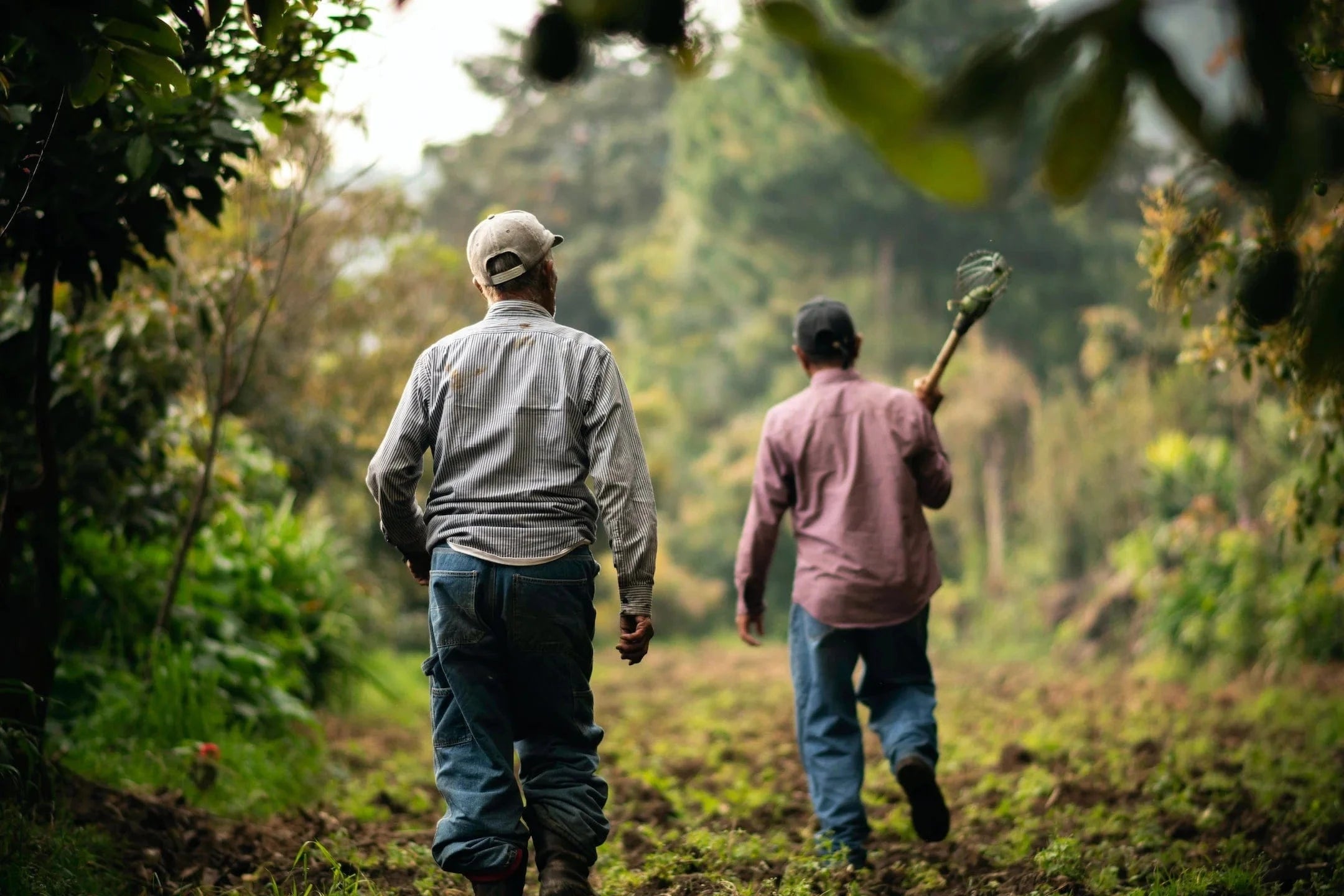
Texas Farmers and Ranchers Are Embracing Renewable Energy
Farmers around the world have the opportunity to make a huge impact in reducing carbon emissions and restoring lands to their former glory. In Texas, farmers are beginning to embrace renewable energy on their land for a number of reasons. Do you recall that bizarre snow storm Texas had in 2021? It the state experienced failure of the grid and gas system which created deadly blackouts. By implementing renewable energy, a back up plan is provided for future disasters. There are also great monetary incentives for the farmers as well. Renewable technology will reduce costs and provide additional income by selling power.
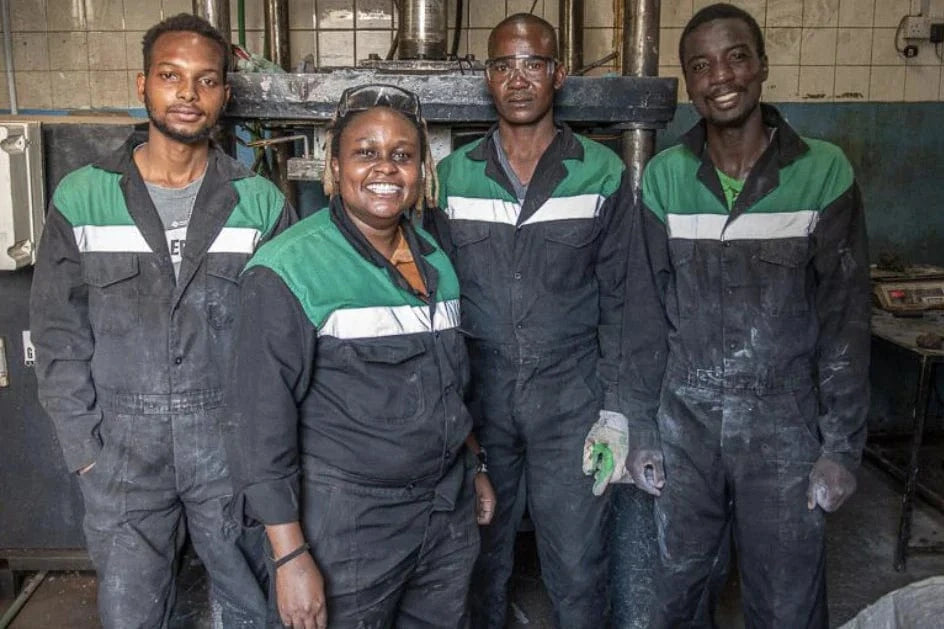
Kenyan Engineer Recycles Plastic Into Bricks Stronger Than Concrete
Humans have created a plastic world and now we're experiencing the consequences of that. But one engineer from Kenya has figured out a way to turn our plastic problem into a solution! The Nairobi based company "Gjenge Makers" realized that plastic waste pollution had become a severe problem — a study supported by the National Environmental Management Agency (NEMA) found that more than 50% of cattle near urban areas in Kenya had plastic in their stomachs. By creating a plastic brick 7X stronger than concrete out of recycled materials, the company strives to spark hope that there are ways to end this crisis.
Policy
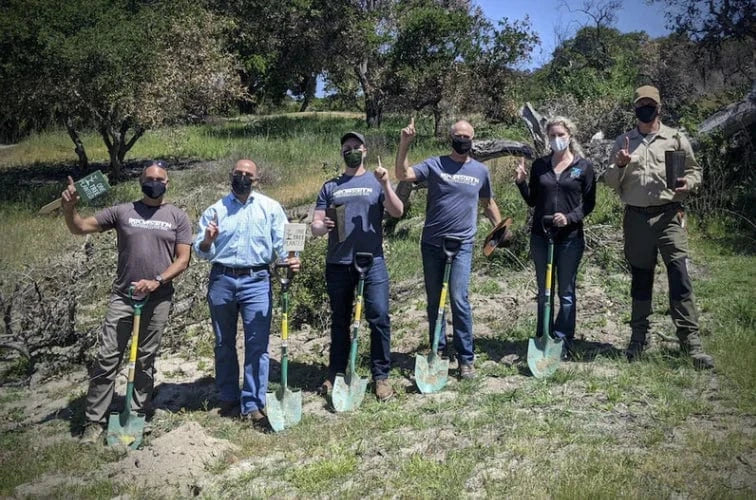
Planting Trees with Congressman Panetta in Support of the REPLANT Act
We were thrilled to plant coast live oaks in Toro park with congressman Panetta! Why? He's a co-sponsor of the REPLANT Act, which will help the U.S. Forest Service plant 1.2 billion trees and create nearly 49,000 jobs over the next ten years to address the growing backlog of nearly two million acres of national forestland in need of reforestation. This is an issue that is compounded by climate change and is expected to only increase as droughts, diseases, forest fires and more continue to degrade United States National Forests. We were also joined by SPCA Monterey County, who rescued over 1,400 animals from the wildfire that burned near this planting site.
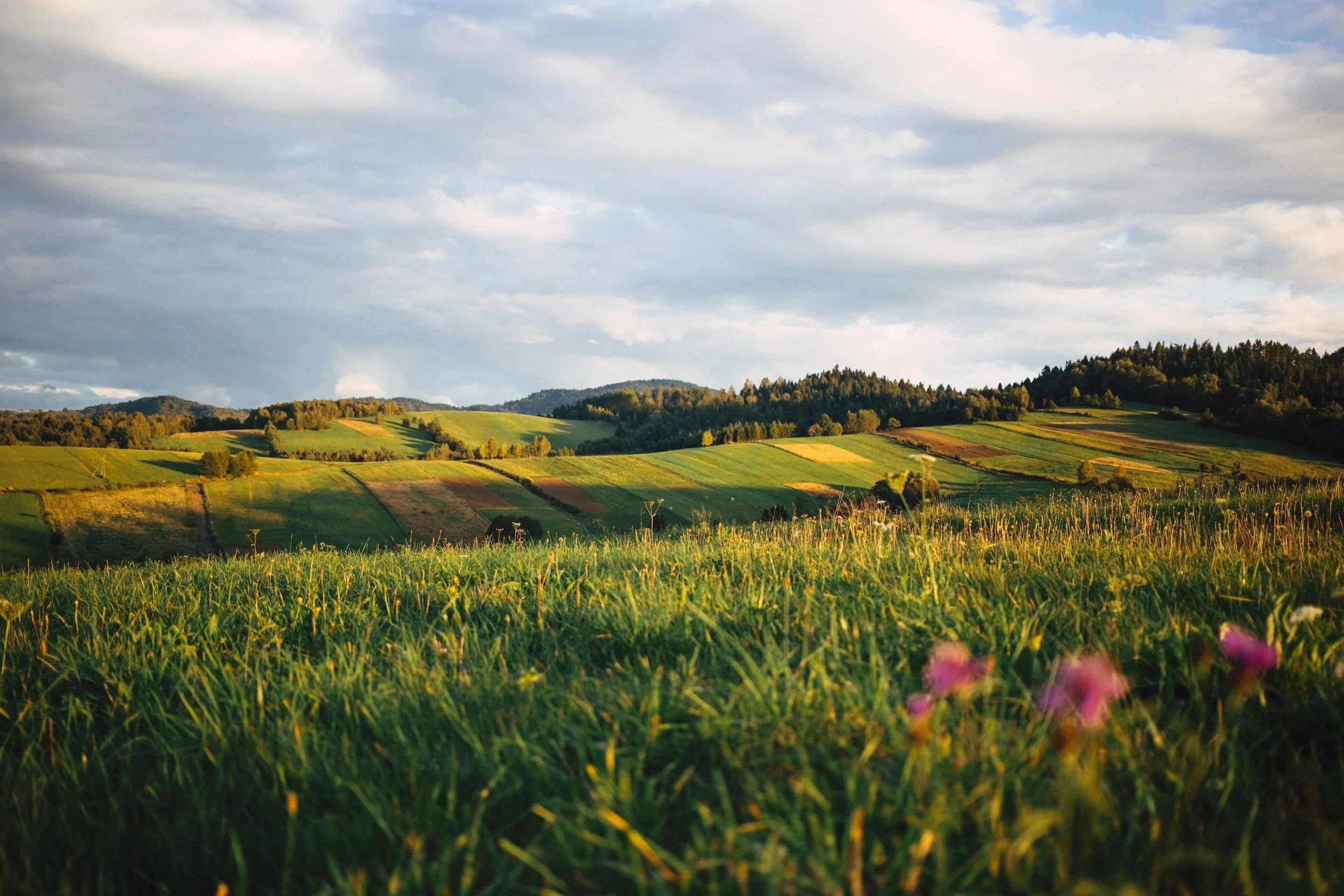
Poland Clinches 'Historic' Deal to Phase Out Coal by 2049
Good news out of Poland! Earlier this week, Poland's government and unions signed an agreement with the coal mining industry to phase out coal production by 2049. In the agreement, Industry representatives agreed to close all coal mines by the target date which, will also include severance payments for workers in the Silesia coal basin. This is a huge step towards Poland's sustainability goals because 70% of the country currently uses coal for for its energy needs. We hope to see big moves like this from other countries soon!

EU Unveils Sweeping Climate Change Plan
This month, the European Union announced their plan to achieve carbon neutrality by 2050. The plan includes several bold proposals to parliament such as plans to tax jet fuel, ban the sale of petrol and diesel powered cars within 20 years. While by governmental and society standards this plan seems like it has intentions to make big impacts, environmentalists like Greta Thunberg are still pushing for more drastic change saying that unless the EU "tears up" its proposals, "the world will not stand a chance of staying below 1.5C of global heating". But hey, better to have a conversation moving and some sort of action taking place!

Biden to Restore Protections for Tongass National Forest in 'Critical Step' for Climate
A huge sigh of relief for Tongass National Forest arrived this month when President Biden and the Department of Agriculture announced that forest protections were put back in place after being rescinded three months before leaving office by former President Trump in a bid to open millions of acres to industrial logging. These protections will also reinstate the "Roadless Rule" which barres companies from construction and large-scale logging in more than half of the 16 million acre forest, which includes five million acres of old-growth trees such as Sitka spruce trees that date back at least 800 years. Congratulations Tongass National Forest!
California Tackles Food Waste With Largest Recycling Program in the United States
California has decided to start the new year off in an impactful way! California will be implementing the largest mandatory residential food waste recycling program in the United States in January, This effort has been created to significantly reduce organic waste in landfills and lower the state’s methane emissions. The waste will be converted to energy to avoid emissions. Most residents will have to dispose of excess waste into green bins instead of going into normal trash cans. Seems simple enough! This follows a similar program that was started in Vermont last year. Let's hope the rest of the states follow their lead soon!
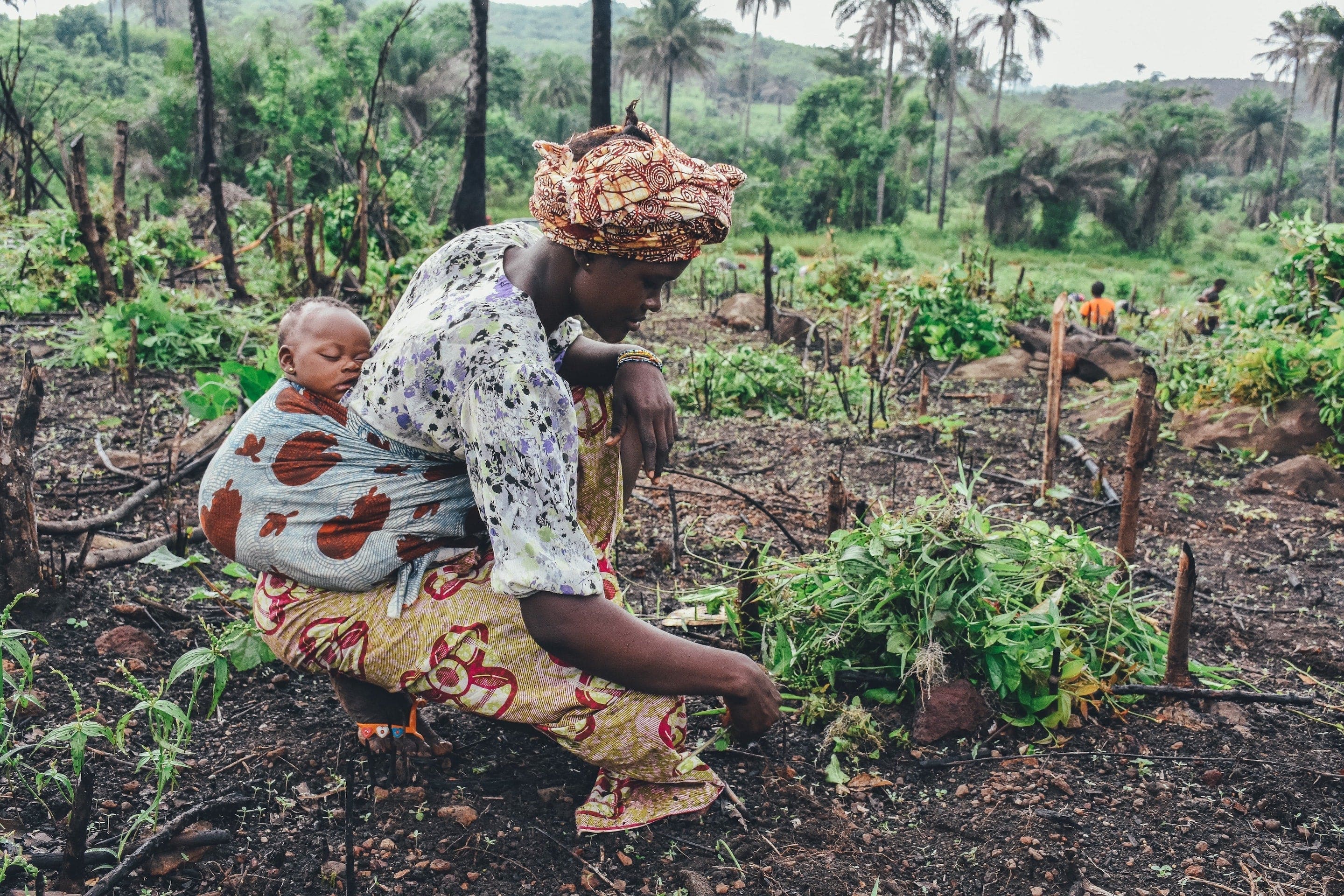
A Clean and Healthy Environment is Now a Human Right
On October 8th, the United Nations Human Rights Council in Geneva passed a resolution recognizing access to a healthy and sustainable environment as a universal right! According to David Boyd, UN Special Rapporteur on Human Rights and Environment, “Professionally that was probably the most thrilling experience that I ever have had or that I ever will have. It was a massive team victory. It took literally millions of people, and years and years of work to achieve this resolution”. It's hard to believe that something like this must be declared as a human right however in doing so creates hope that there will be a greater shift in protecting the environment.
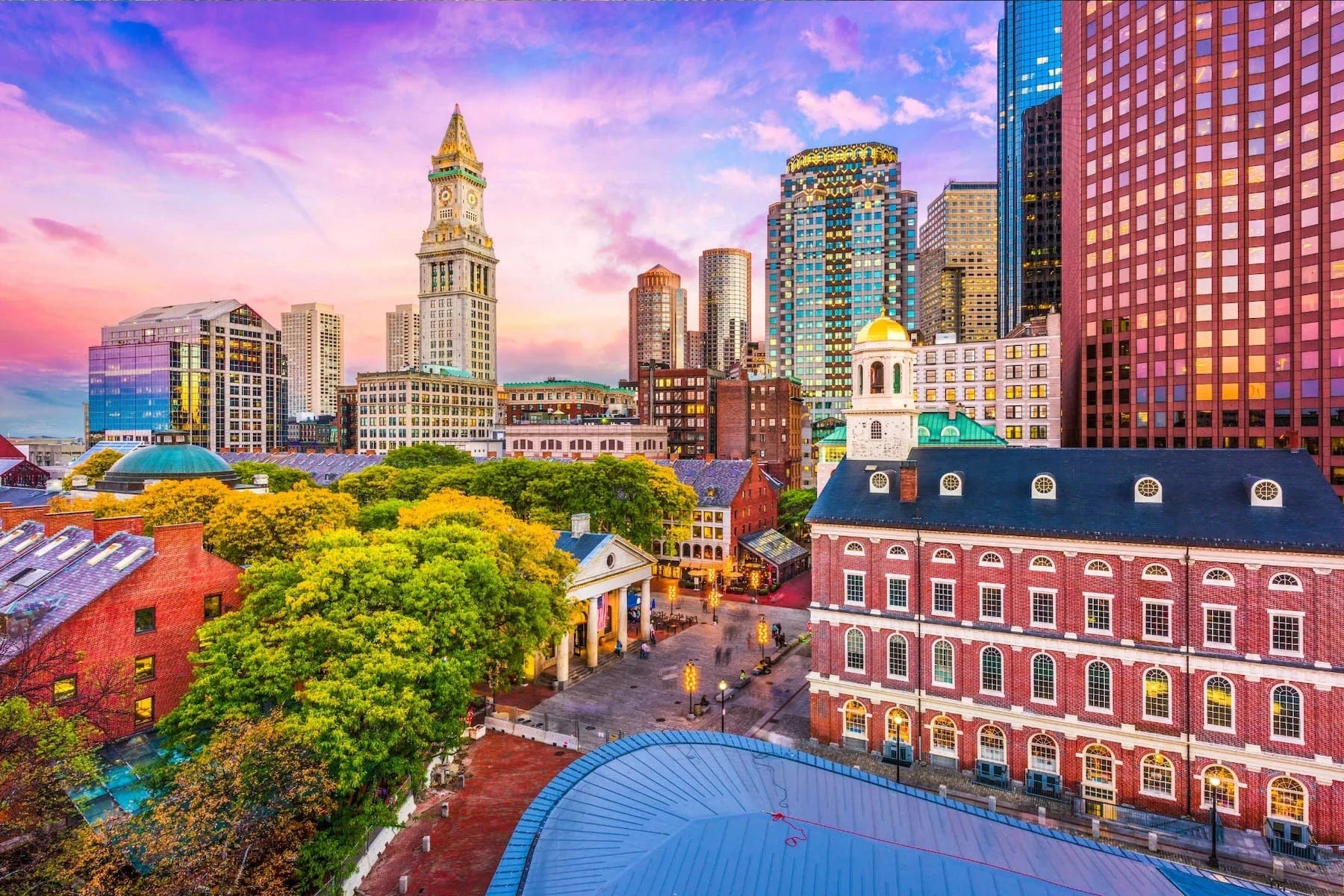
Boston Mayor Wu Divests City Funds From Fossil Fuels
In her first major policy action, Boston Mayor Michelle Wu signed an ordinance to divest public funds from fossil fuels. The measure prohibits public investment in any financial instrument deriving more than 15% of its revenue from fossil fuels, as well as from tobacco products or jail or prison facilities.
EPA Withdraws Trump Oklahoma Environment Order After Input From Tribes
In December, The U.S. Environmental Protection Agency announced plans to withdraw and reconsider a Trump administration decision to give Oklahoma the authority to make decisions on environmental issues on tribal land. Historically, land is managed more sustainably when Indigenous People reserve the right to make decisions for their land.
Too Good Not to Share

Coldplay Announces World Tour With A Positive Impact
One Tree Planted is proud to announce that we will be working with Coldplay to plant one tree for every ticket sold around the band’s Music Of The Spheres World Tour through a global reforestation agreement to create positive environmental impact. The tour is set to kick off in Costa Rica in March of 2022.In 2019, Coldplay announced that they would pause touring until concerts could be “environmentally beneficial” and have taken this time to develop the best possible strategy to minimize the carbon footprint of touring. Now, with the announcement of their upcoming world tour, along with a new album, Music Of The Spheres, the band is also unveiling a new focus on sustainability.
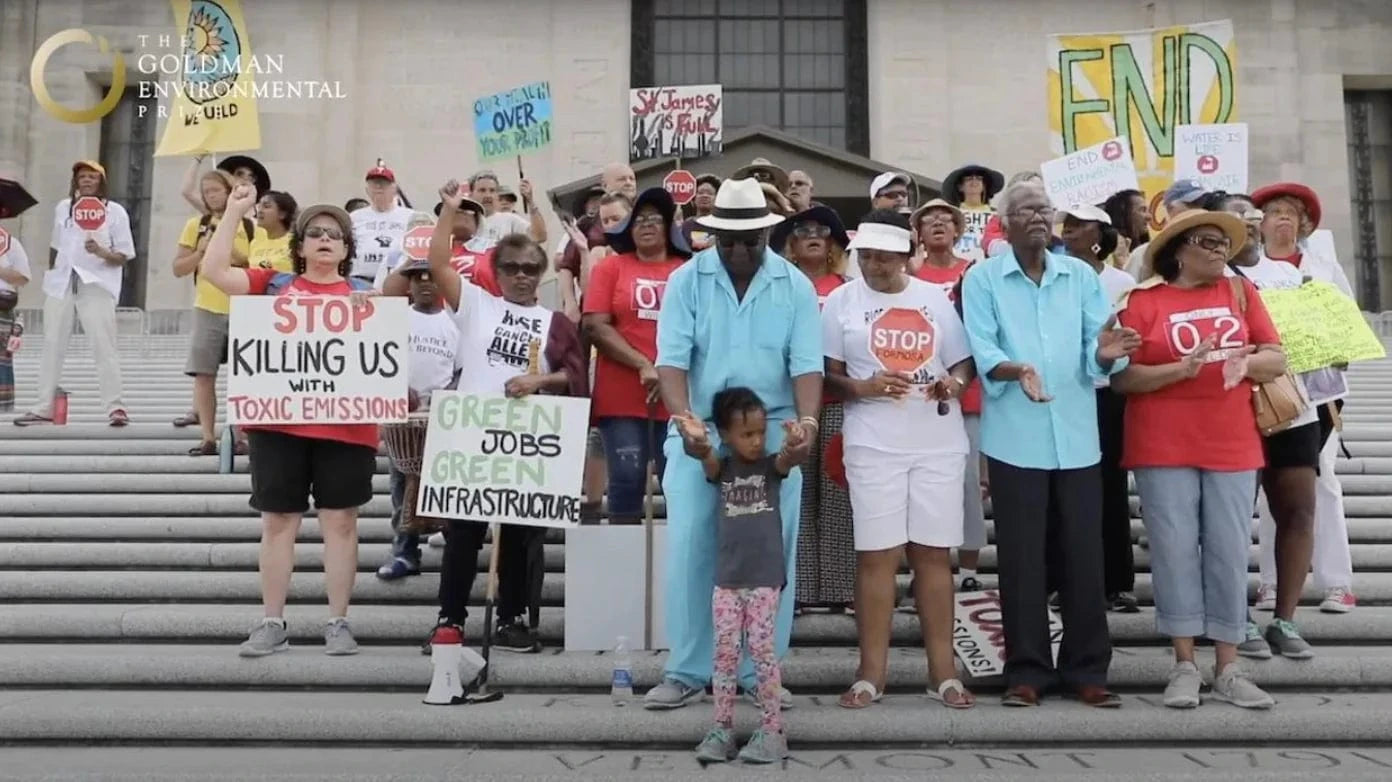
St. James Parish Activists Win 'Important Victory for Environmental Justice' vs. Petrochemical Plant
A win comes in for the environmental justice sector! Announced this month, a petrochemical plant in St. James Parish, Louisiana, must complete a thorough environmental impact statement if it is to obtain a key permit, according to the Army Corps of Engineers an. This will delay the major construction of a $9.4 billion petrochemical complex, indefinitely. "Nobody took it upon themselves to speak for St. James Parish until we started working to stop Formosa Plastics," Lavigne said in a statement. "Now the world is watching this important victory for environmental justice", said Sharon Lavigne, who founded the group Rise St. James to fight the plant and was awarded the Goldman Environmental Prize for her efforts.

Orchid Thought to be Extinct Found on Top of Roof
You never know where nature will pop up! Serapis parviflora, also known as small-flowered tongue orchid was found in a rooftop garden in London atop the Japanese investment bank Nomura. This orchid is typically found in the Mediterranean basin and the Atlantic coast of France, Spain and Portugal and this is only the second time the species has been found in the UK.
It is unknown how the orchid found itself in this rooftop garden but the garden manager said, “Orchid seeds are incredibly small and can travel great distances by wind. The plants could have originated on the continent and been brought over the Channel on southerly winds which frequently bring Saharan dust deposits to the capital. Once settled on the Nomura roof the seeds would have formed a symbiosis with a mycorrhizal fungus enabling them to germinate and grow. While possible, the odds are astronomical.”

Paris to Transform Champs-Elysees into "Extraordinary Garden"
Paris is about to become greenified (yes, you read that right)! The French capital's mayor, Anne Hidalgo, said that the city would follow through on a $305 million project to transform the iconic Champs-Élysées into a green oasis. The 1.2 mile avenue is also an eight-lane highway used by approximately 3,000 vehicles every hour so in addition to beautifying the area, the new plants will also improve air quality!
I think we've got this positivity thing DOWN! See ya later 2021 and cheers to a happy new year! Let's dive in head first and make this next year one of the most impactful yet! Hungry for more positivity? We've got plenty more good news stories from the past year. And if you're feeling really optimistic about 2021, plant trees around the world!
Get news, updates, & event Info delivered right to your inbox:
Related Posts
9 Sustainable New Years Resolutions
18/12/2025 by Meaghan Weeden
Inspirational Quotes About Trees
16/12/2025 by Meaghan Weeden
The 9 Oldest, Tallest, and Biggest Trees in the World
11/12/2025 by One Tree Planted
Popular On One Tree Planted
Inspirational Quotes About Trees
16/12/2025 by Meaghan Weeden
The 9 Oldest, Tallest, and Biggest Trees in the World
11/12/2025 by One Tree Planted
What Causes Deforestation?
10/07/2025 by Meaghan Weeden
Fundraising Disclosures

Be Part of the
Restoration Movement
The Grove is more than just a monthly giving program: it's a vibrant community of individuals who are dedicated to reforestation and environmental restoration on a global scale.
As a member of The Grove, you affirm your commitment to restoring forests, nurturing biodiversity, and fostering positive global change.



